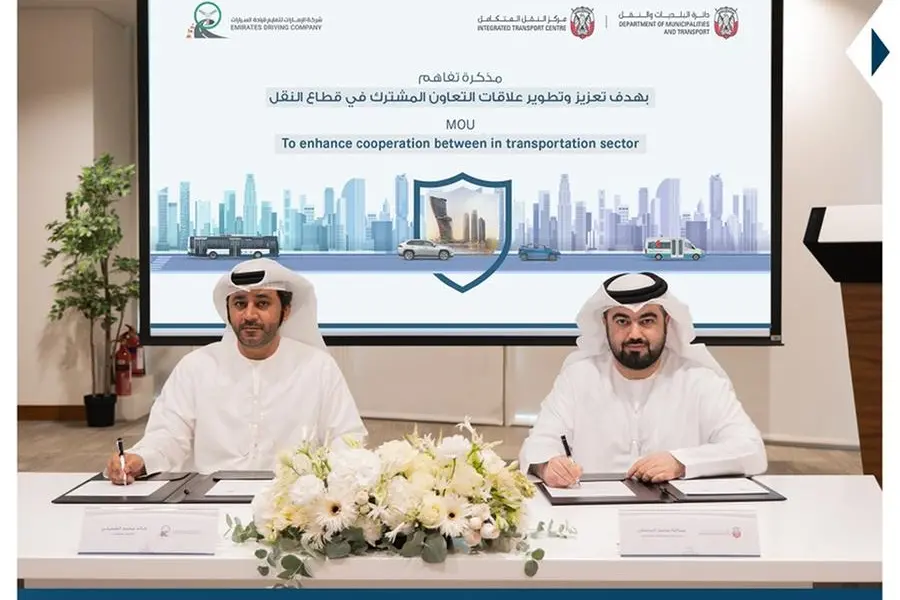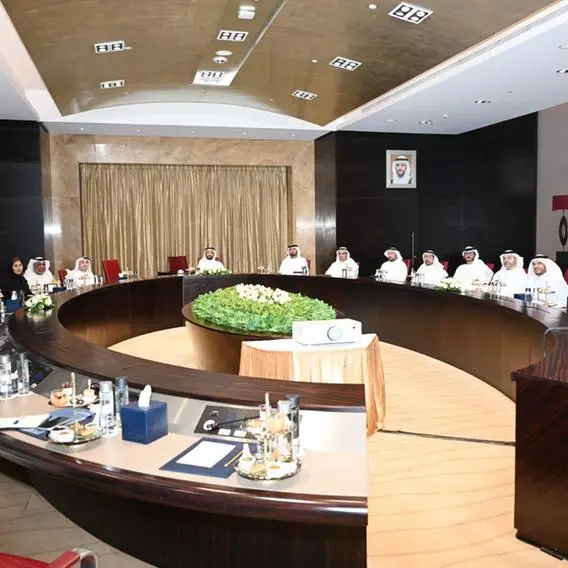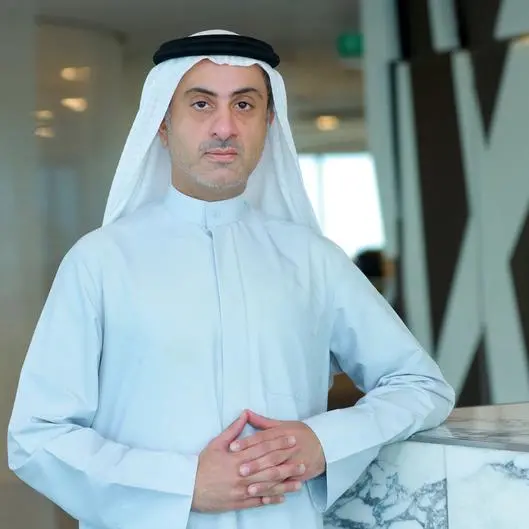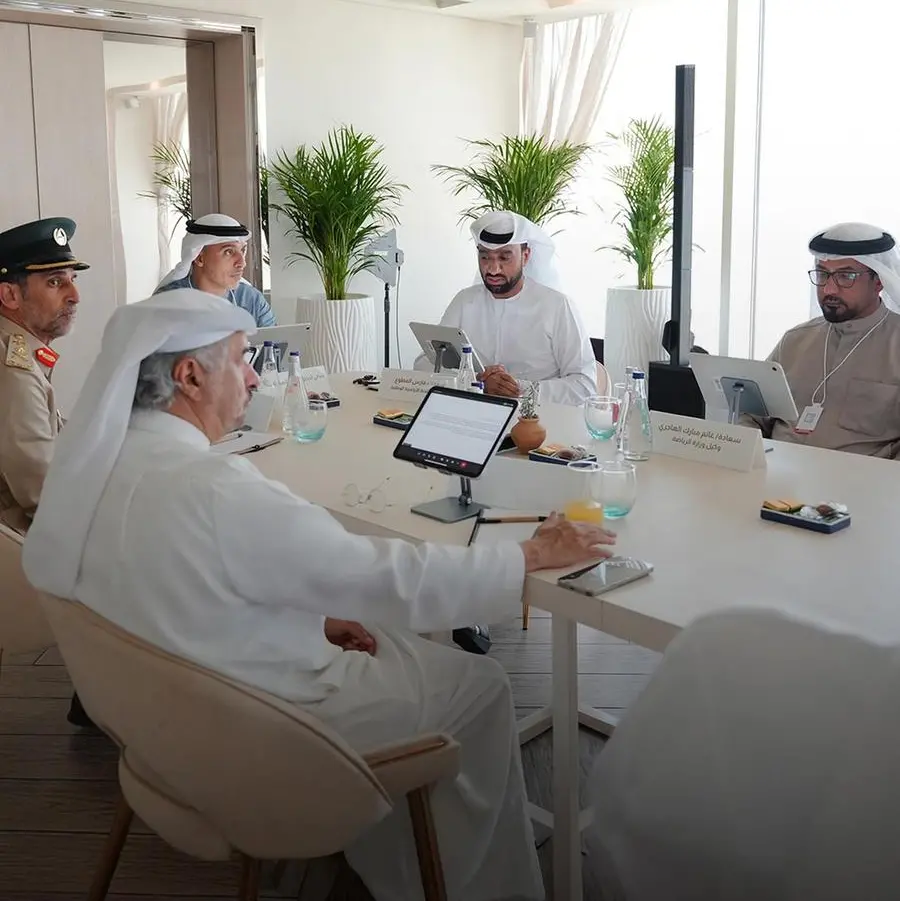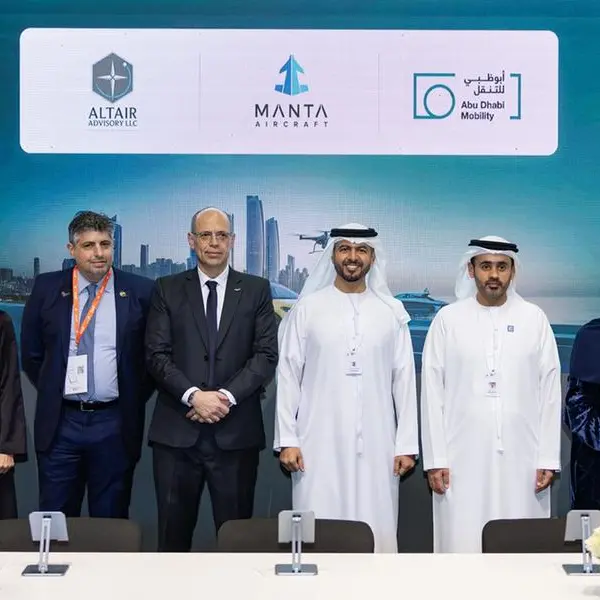PHOTO
Abu Dhabi on Wednesday: The Integrated Transport Centre (ITC) of the Department of Municipalities and Transport (DMT) in Abu Dhabi, has signed a Memorandum of Understanding with Emirates Driving Company in a move to keep all parties updated on the technological developments in the transport sector, enhance cooperation and joint efforts, and raise awareness on traffic rules among drivers to help instill a culture of safe driving in the emirate.
The Memorandum of Understanding was signed by H. E. Abdulla Al Marzouqi, Director-General of the Integrated Transport Centre, and Mr. Khaled Mohammed Al Shemeili, CEO of the Emirates Driving Company.
The ITC clarified that the collaboration with Emirates Driving Company aims at enhancing the level of training and qualifications of drivers, developing their skills and improving their efficiency through the use of modern, sophisticated training methodologies that are based on the highest standards and latest practices adopted in the field. The purpose of the training is to improve the drivers’ performance and their ability to deal with unexpected incidents and perils of the roads, and to educate drivers on how to drive in a green and economic way, as well as how to deal with public transport users in a professional manner. The optimization of driving skills will ultimately reflect positively on road and traffic safety, which in turn will facilitate the proper implementation of safe driving rules in the Emirate of Abu Dhabi.
Furthermore, the collaboration contributes to reinforcing ITC’s partnerships with private sector organizations for the purpose of keeping Abu Dhabi's transport sector up-to-date on the latest technologies and solutions, as well as supporting the emirate’s smart transport strategy. The collaboration is also in line with the efforts to adopt the highest international practices which reflects the transport sector’s development, enhance the quality of driver’s training and learning outcomes through modern programs and innovative solutions that contribute to the development of drivers training programs, testing, and performance evaluation. On that account, the collaboration will support training in a number of different types of vehicles, increase the quality and efficiency of transport services, and will ensure the highest standards of road safety and security are met.
Both parties will be moving towards common goals, as set out in the Memorandum of Understanding, in several fields which include; exploring common development opportunities, developing joint initiatives in the area of sustainable transport and mobility, sharing expertise, and putting them into good use when training officers who are in charge of the safety of smart vehicles. The collaboration between ITC and Emirates Driving Company will also facilitate data exchange, promote new research and development initiatives in fields encompassing autonomous vehicles, regulations for transport services, and electric vehicles. Furthermore, the collaboration will aid in the preparation of programs for transport and professional mobility permits, such as training and evaluation programs, and international accreditations of professional drivers’ certificates that include taxi drivers, public transport bus drivers, passenger transport, freight and cargo transport, delivery services, and users of electric bikes.
The Emirates Driving Company stated that it will dedicate its twenty years of experience in teaching how to drive, and will also be in charge of theoretical and practical training, whether conducted in person or virtually. The Emirates Driving Company will also be responsible for coordinating policies and procedures related to accreditations and international certificates of training, qualifying and assessing professional drivers through various concerned entities, (such as: the International Commission for Driver Testing, the International Road federation, the Swedish National Association of Driver Educators, SWOV, the Royal Society for the Prevention of Accidents, the International Drivers Association, the European Driving School Association, and other accreditations). Additionally, the EDC will be using methods to aid in training such as simulation machines, virtual and augmented reality technology, and will also incorporate artificial intelligence in the training and evaluation process, and will conduct periodic reviews on the reasons behind professional, technical, and behavioral violations that lead to accidents.
-Ends-
